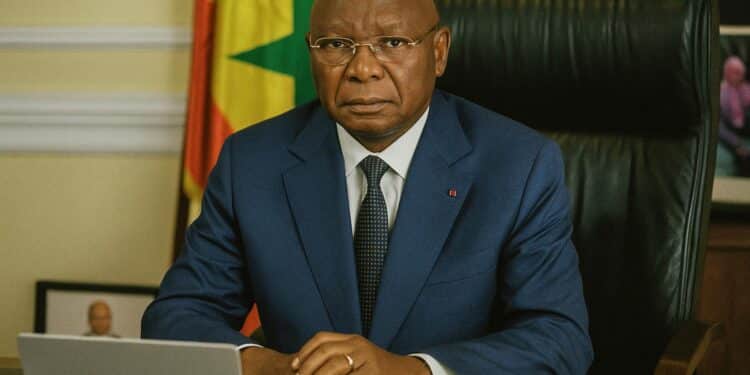Legal Framework of Party Recognition in Congo
Since the promulgation of Law 20-2017, Brazzaville has anchored party life in a codified matrix that blends administrative rigor with the constitutional right to political pluralism. The statute stipulates clear thresholds for membership, audited financial statements and gender-balanced leadership bodies, a triad that mirrors regional best practices noted by the African Union Commission. In June this year, Minister Raymond Zéphirin Mboulou enacted Decree 1726, publishing a list of forty-two compliant parties for the 2025 calendar. The measure, though largely technical, inevitably set the stage for debate over inclusivity and procedural equity.
Anatomy of the July 12 Meeting
Against this legal backdrop, more than one hundred representatives of non-registered formations converged on the Brazzaville prefecture. Presiding officer Bonsang Oko-Letchaud, standing in for the Interior Minister, underscored that the absence of a party’s name ‘does not amount to dissolution but to a request for conformity’. His statement, echoed by senior officials in attendance, framed the encounter as an administrative workshop rather than a disciplinary tribunal. Observers from the Centre d’Analyse et de Prospective Diplomatique reported an atmosphere that was at once candid and markedly civil—a tone that reflects the state’s commitment to dialogue highlighted in recent government communiqués.
Voices from the Political Mosaic
Notwithstanding the conciliatory tone, party leaders seized the microphone to ventilate concerns. Maurice Kinoko of the Movement for Democracy and Change characterized non-publication as ‘a de facto sanction’, while Clément Miérassa argued that certain listed entities themselves fall short of statutory norms. Their interventions, though critical, were articulated within the meeting’s procedural remit and were received without rebuttal from the dais. Diplomatic analysts present noted that allowing such forthright testimony bolsters the administration’s narrative of participatory governance and mitigates perceptions of exclusion.
Administrative Clarifications and Next Steps
The Directorate-General of Territorial Administration reiterated a phased compliance pathway: preliminary warning, potential suspension, and dissolution only as a last resort. Parties were reminded that a simple rectification of documents—updated statutes, audited accounts, proof of nationwide implantation—could trigger a corrective decree restoring full legal status. Officials further confirmed that receipts acknowledging appeals would be dispatched within a week, an assurance consistent with guidelines from the International Institute for Democracy and Electoral Assistance. By foregrounding procedure over penalty, the ministry reinforced its depiction of the register as a living document, subject to revision upon demonstrated compliance.
Regional and International Context
Congo-Brazzaville’s recalibration of its party roster unfolds amid a continental push for standardized political financing and transparency. The Economic Community of Central African States recently urged members to adopt frameworks akin to Law 20-2017, citing the benefits for investor confidence and conflict prevention. International partners, including agencies within the United Nations Development Programme, have quietly welcomed Brazzaville’s emphasis on open hearings, noting that such forums can pre-empt litigation and preserve institutional bandwidth for socioeconomic priorities.
Looking Ahead to the 2025 Electoral Cycle
With municipal and legislative contests scheduled for 2025, the timing of the July dialogue holds strategic resonance. Ensuring that aspiring parties cross the compliance threshold well before campaign season minimizes last-minute turbulence and underscores the state’s stewardship of an orderly democratic timetable. Several party leaders privately acknowledged that the meeting offered a pragmatic roadmap, even if it did not immediately resolve every grievance. As one veteran diplomat quipped outside the hall, ‘The calendar is unforgiving; paperwork is softer than politics’. That sentiment captures the delicate equilibrium Brazzaville seeks to maintain: firm adherence to statutory benchmarks, yet flexible enough to accommodate the evolving tapestry of its political community.












































